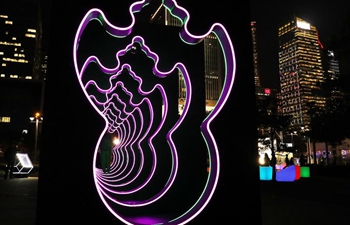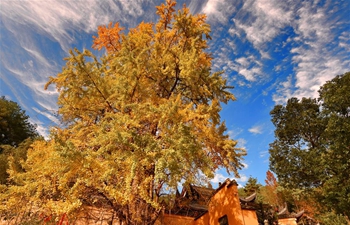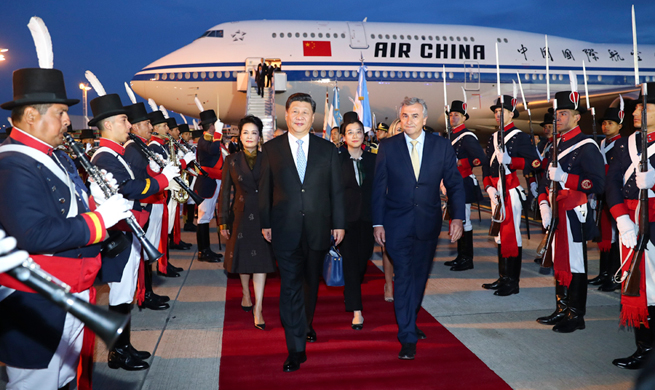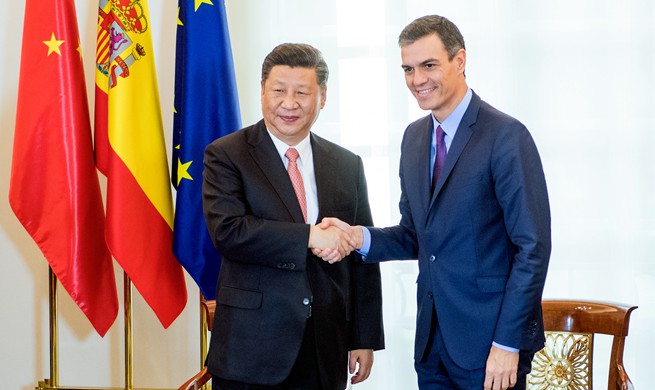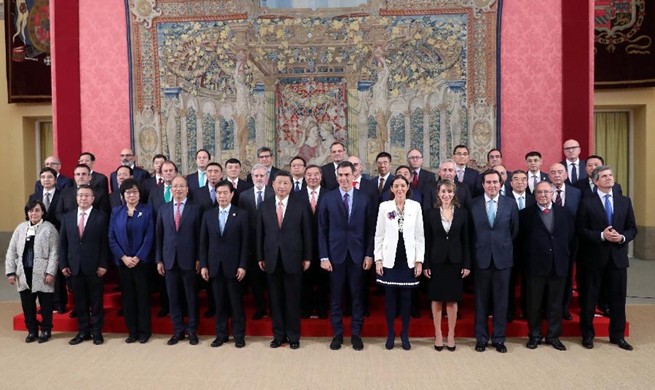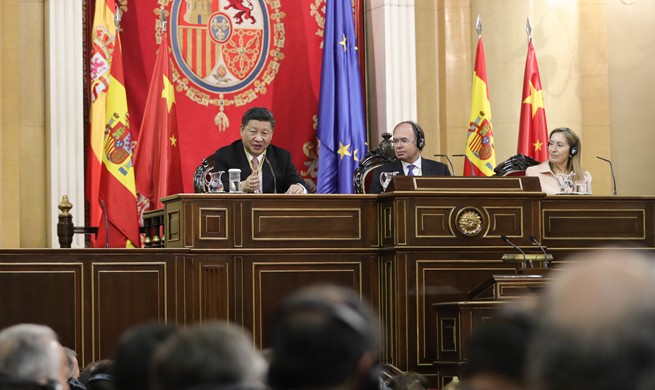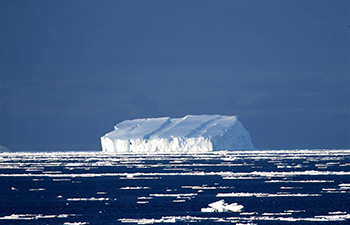BEIJING, Nov. 30 (Xinhua) -- China has shown determination in building an "ecological civilization" by engraving it into the Constitution, which is a "very commendable" method to guarantee the cause with legal measures, said an expert with international think tank, the Club of Rome.
"It's very important not to only make political statements but to make sure that the objectives become part of the law, or in China's case, the Constitution," said the Swedish politician Anders Wijkman, who is also co-President of the Club of Rome, which focuses on global issues including climate change, population expansion and resources depletion.
Earlier this month, the Chinese version of the Club of Rome latest report, "Come On: Capitalism, Short-termism and the Destruction of the Planet," was launched in Beijing.
The authors of the report said the human footprint is increasing fast and if not reversed, will eventually lead to the collapse of the global economy and the destruction of the planet's ecosphere. They have proposed an overhaul in the way that governments, businesses, financial systems, innovators and families interact with the planet.
A shift from profit-driven economics to the pursuit of an overall balance between human activities and the ecosystem is indispensable for the sustainable development of both humanity and the planet, Wijkman said.
Apart from governing entities and legal instruments, the civil society, the communities of investors and the research and education communities should also become strong players in the necessary transformation, he added.
CHINA MAKES PROGRESS, FACES CHALLENGES
"The way we define economic development today through production growth, GDP, is primitive, or rather simplistic," Wijkman told Xinhua when asked whether development and building of ecological civilization could be achieved simultaneously.
"We need to develop new indicators that measure welfare and well-being of the people, who should live in clean and healthy environment," he said.
"Production can be positive or negative, and we must distinguish clearly what really is positive development.
"I have observed in China many positive developments: many investments in renewables, the Constitution mentioning ecological civilization as a long-term goal, and that China has restored many degraded lands," Wijkman said.
He said China has been rapidly progressing in the transformation and has become a global leader in new energy development, taking advantage of large expansion of new energy projects to lower the costs.
He also praised China's decision on banning waste imports as it pushed the other countries to find innovative solutions by re-designing the production model and turning waste into valuable materials.
"We as a community with a shared destiny need to spend more money on research and innovation, so we can develop clean production and raise the ecological awareness of our scientists and researchers with training."
He however noted that challenges remain as China is gradually upgrading its heavily polluting industries like infrastructure and materials.
"The Club of Rome provided a brand-new way of thinking, but there is still an enormous gap between the limits of the ecosystem and the positive attempts to push for the human society to achieve sustainability," said Li Dihua, a professor with Peking University's College of Architecture and Landscape Architecture, at the report launch.
Li said the challenge is to translate thoughts, science-technology and knowledge into creative, fast and large-scale practices of transformation. "To build an ecological civilization, we need to opt for a path of creative development."






